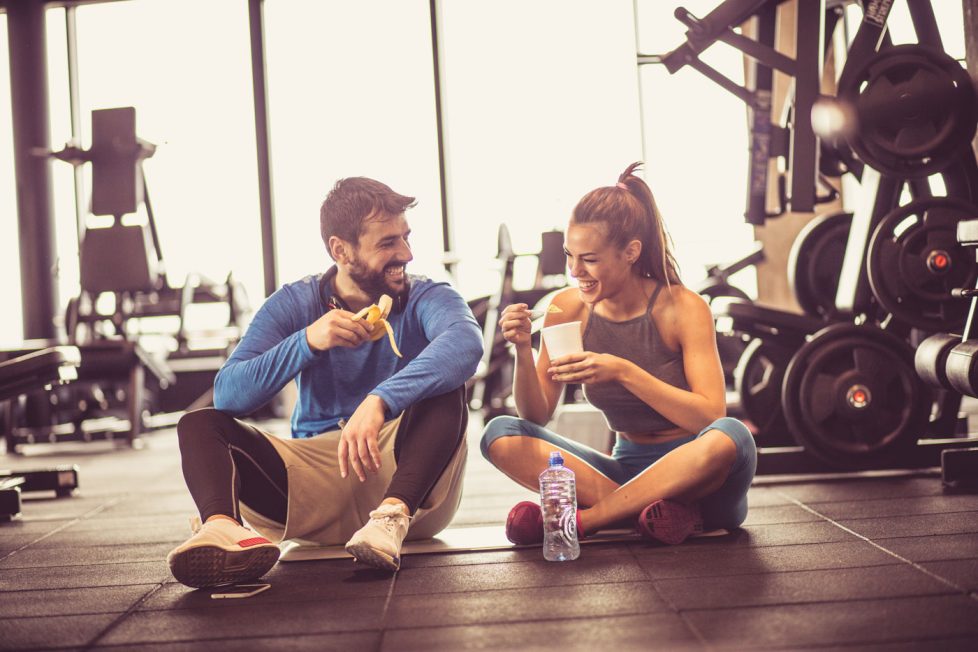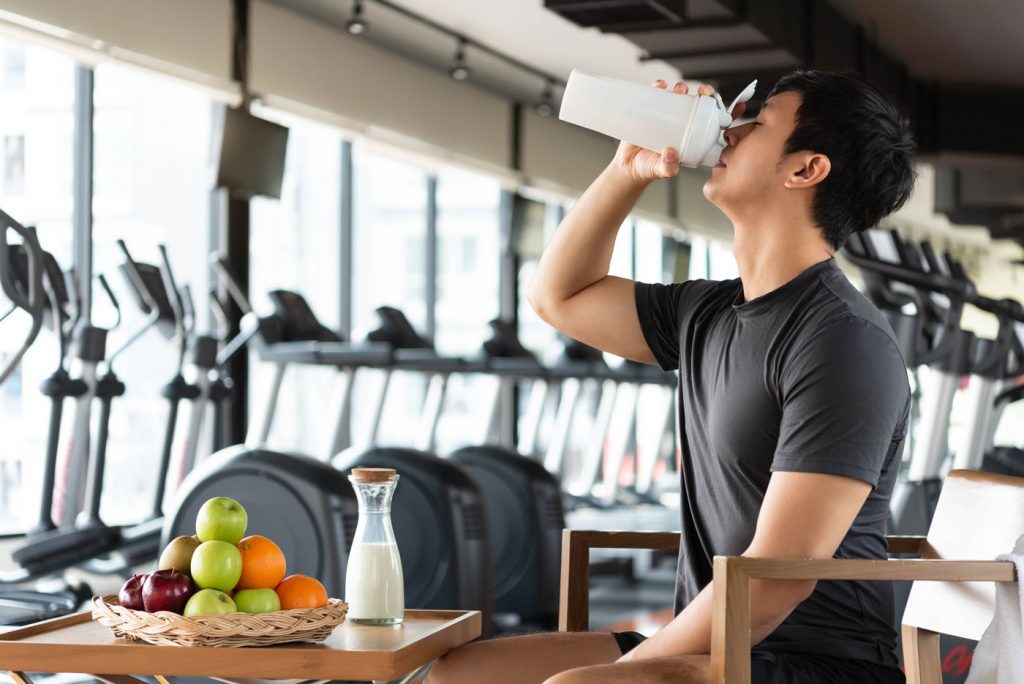What to eat after training?
Choosing the right foods after your training can help you recover more quickly, build muscle, and get ready for your next workout.

Choosing the right foods after your training can help you recover more quickly, build muscle, and get ready for your next workout.

When you get your training session, the muscles use up stored glucose, called glycogen, and levels become depleted. Some of the muscle proteins also get damaged, especially during strength exercises. Eating the right combination of carbohydrates, protein, vitamins, and minerals helps speed the process of rebuilding the used glycogen stores, as well as repairing muscle proteins.
What you eat after a training depends on the duration and intensity of exercise. The type of exercise is also important. Higher carbohydrate meals are most beneficial after endurance activities — such as running or cycling — lasting more than an hour. Following strength exercise, it’s important to consume protein in combination with moderate carbohydrate.
Timing also matters, but you have more wiggle room than you might think. The ideal timing for consuming a post-training snack is within 45 minutes, but benefits can be seen up to 2 hours after exercising. If you’re a regular exerciser, you probably already know that it is important to understand what happens when you don’t eat enough after you work out. So, skipping post-training refuelling can leave you feeling tired and foggy and can get in the way of recovery.

Earlier, we stated that your muscles are primed to utilize anything and everything you throw their way, and while you could go and crush a dozen doughnuts following a tough training, that’s not exactly ideal. Fortunately, you don’t have to do much guessing when it comes to figuring out what to eat post-workout, as numerous studies have been conducted investigating this very issue.
Following training, blood flow and insulin sensitivity increases, which increases amino acid transport and uptake into your muscles. As such, it would make sense that consuming some protein following your workout would be helpful.
After all, you just spent the better part of 60-90 minutes breaking down muscle tissue, which is made of protein.
Therefore, by including protein in your post-training meal, you’re helping stop muscle breakdown as well as providing the building blocks your body needs to repair and grow the muscles you just spent time breaking down.
Beyond that, research shows that protein consumed immediately following exercise stimulates muscle protein synthesis to a higher degree than when an equivalent amount of protein is consumed at other times of the day. As far as how much protein do you need post-training, research has shown that 20 grams seem to be the minimum necessary to stimulate protein synthesis maximally.
Here are some post-training protein foods broken out according to their predominant macronutrient: chicken, beef, turkey, pork, seafood, eggs, greek yogurt, protein bars, protein powder.
The issue of whether or not carbohydrates are beneficial or necessary post-training has been a hotly debated topic as of late especially when you consider the current mass carbo phobia that’s been permeating throughout the fitness industry recently thanks to low/no-carb diets like Paleo, Primal, Keto, and Carnivore.
Fortunately, we don’t have to rely on the fearmongering of fad diets for our post-training nutrition recommendations; we have human studies to look to for answers.
A study showed that subjects consuming protein alone were just as effective as protein + carbohydrate when it came to repairing or building muscle. However, the group consuming carbohydrates experienced better recovery than the group that consumed protein alone. Additionally, other research has shown that the addition of carbohydrates to the post-workout meal stops catabolism, enhances muscle protein synthesis, and accelerates glycogen replenishment.
It’s also worth noting that consuming carbohydrates post-workout increases insulin levels. Insulin is a hormone that helps shuttles nutrients from the bloodstream into your muscles. The best carbohydrates to eat after training are rice, potatoes, fruits (strawberries, bananas, apples, etc.), chocolate milk, pasta, quinoa, green vegetables.
If you want to include some fat in the post-training meal you can, but it’s not going to confer any special muscle-building benefits like protein and carbohydrates can. It’s not going to hurt your muscle-building efforts or glycogen replenishment either if you’re only training once per day too.
Fat adds flavour to food and helps keep you feeling full, but it also slows down the digestion of your meal. Now, this isn’t a big deal if you’re only training once per day, but if you are training or competing for multiple times per day, then you would want to minimize fat in the post-training meal to allow for the carbohydrates and protein to be digested and absorbed as quickly as possible. We suggest you choose quality fat as Nuts, Seeds, Avocado, Olive Oil.
Water is the most important building block you need after a workout, and during, for that matter. While extra-long or hard workouts will require replenishing those electrolytes, recovering from just about any kind of workout goes way better if you’ve been staying hydrated.
